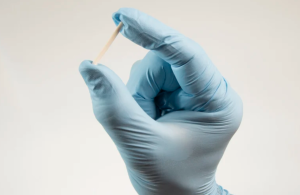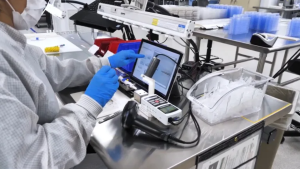
Therapy developers are being asked to consider ways to deliver drugs for a longer time period with a single dose. This has spurred innovation in both the oral and parenteral spaces, but the greatest potential for long-acting delivery remains in implantable systems. Because of this, growth for the global implantable drug-delivery market is forecast at 10 percent annually in coming years with an expectation for the market to reach nearly $30 billion (USD) by 2025.1 Contraceptive, ophthalmic, cardiovascular, diabetes, oncology, and autoimmune disease applications are all likely to focus on development of these therapeutic forms.
Pharmaceutical companies that embrace drug-elution technologies are better equipped to solve patient compliance issues through longer-term delivery of a therapy. They are also able to design a targeted therapy that may lower the required dosage of a given drug, which can help limit side effects for patients. These advantages mean many patients living with chronic conditions can realize significant improvements in their overall quality of life.
Although the advantages of implantable drug-delivery systems are undeniable, therapy producers often view the design process for a drug-eluting product as complex. However, navigating the process is easier when therapy producers consider the drug, excipient material, formulation methods, and downstream processes early in the design phase. These factors can also be used to assess the feasibility of developing an implantable system for a drug product already on the market in a different delivery form.

EARLY CONSIDERATIONS FOR DRUG SELECTION
There are three key areas therapy developers need to consider early in the drug selection process: potency, approved drug versus novel compounds, and molecular weight of chosen drug.
Drug Potency. The potency of a drug is an important consideration for system feasibility. A finished drug-eluting device needs to carry the necessary drug dosage required for the duration of the therapy. In nearly every drug-eluting application, the smaller the drug-eluting device, the greater the likelihood patients will accept it. Whether minimizing the needle gauge used to insert the implant or making the implant procedure less invasive, smaller drug systems provide a distinct advantage. This means drug potency daily dosages measured in micrograms have a better chance of success in-market. Shorter-term applications can also be beneficial where dosages are on the milligram scale.
Leveraging an Approved Drug Versus Formulating a Novel Compound. Therapy developers may have the luxury of choosing from multiple drugs already approved and on the market as the basis for a new therapy. Once the drug compound is selected, the existing in-market products can serve as a guide for dosage requirements for the product being developed. If targeted delivery is an option and existing products were only designed for systemic administration, it may be necessary to research the proper dosage for a targeted delivery approach. As discussed, realizing the benefit of lowered dosages can have a big impact on the future success of a product.
If a novel drug is being formulated for an implantable delivery device, it’s important to have a strong grasp of the therapeutic window including understanding differences between systemic administration and a targeted delivery approach. Once these critical details are understood, a feasibility study can be designed to create a concept for an implantable system. This is typically accomplished by creating samples at different drug loadings and evaluating their resulting elution profile.
Small Versus Large Drug Molecules. Much of the existing development in the implantable drug-delivery space is on small molecule drugs, which are much more receptive to encapsulation and more likely to handle the temperatures required during traditional manufacturing processes.
However, larger molecule compounds have been successfully formulated for implantable systems. If the product can be stabilized into a powder, it may be worth an early evaluation to come up with a mixing process that can yield a stable product when combining the raw material forms together. From there, feasibility studies can explore how the mixture reacts to going through a process to cure and form the final product.
CHOOSING A POLYMER EXCIPIENT
Therapy producers need to think about how to design the vehicle that will deliver the drug. The main considerations here are the duration of the drug-delivery window, the form a drug-eluting component will take, and what the processing temperatures are for a chosen excipient polymer.
Ideal Drug-Delivery Window. Polymer excipient materials in use today can be classified as either biodurable or biodegradable and the ideal drug-delivery window will determine which type is best for the product.
Biodurable materials are inert and do not pose any threat to the patient. However, they do not break down in the body, so they are best suited for long-term drug-delivery applications. The most commonly used biodurable materials are:
- Silicone.
- Ethylene-vinyl acetate (EVA).
- Thermoplastic polyurethanes (TPU).
Biodegradable polymers do break down in the body so a follow-up procedure to retrieve an exhausted drug core is unnecessary. However, because the polymer breaks down over time, it limits the life of an implant to less than six months. Examples of biodegradable polymers are:
- Polylactic acid (PLA).
- Polyglycolic acid (PGA).
- A combination of PLA and PGA to create PLGA.
- Polyethylene glycol (PEG).
Design of the Drug-Eluting Component. The form of a drug-delivery component may also influence the choice of excipient material. Typically, if there are no requirements for the excipient material other than to carry the drug and provide a predictable dose to the patient, the simplest designs are rod, sleeve, or ring shapes. These designs allow for the greatest flexibility to mold or extrude products efficiently.
However, if the design is inorganic and needs to affix to other components in an assembly, or if it needs to be a certain shape to hold its place in the body, the product may need to be custom molded. In these cases, the manufacturing method for the component will dictate the excipient materials, which will impact the elution rate of the drug from a delivery system. For example, drugs elute out of heat-cured rubber (HCR) silicone systems more slowly than out of a liquid silicone rubber. These differences must be considered and evaluated to have success in the development of a product concept.
Required Processing Temperatures. Lastly, there must be a comparison of the desired excipient polymer’s processing temperatures and a drug’s melting point. Some compounds do not have the ability to stand up to the temperatures required to cure or form some of the excipient polymers. In the early design stages, this guides therapy developers to select one or several polymer candidates that can be cured at temperatures and allow the drug to remain stable. However, different formulation methods can also allow for the introduction of a drug after forming the polymeric component, making processing temperatures a nonissue.
FORMULATION
There are several methods that can be used to combine the drug and polymer together. Beyond how to produce the excipient polymer in its final form, therapy developers may also consider when it is best to introduce the drug into the system. As mentioned, drug compounds with low melting points may break down if exposed to certain temperatures during the manufacturing process, and the chemistry of the drug may inhibit the curing or forming process of some polymers. In these situations, it may be important to investigate different formulation methods to find solutions.
- Mix and Manufacture – The most used process is where both the drug compound and excipient materials are mixed prior to the manufacturing process. This approach typically allows for the most efficiency but is more likely to encounter the heat sensitivity and obstruction of cure challenges.
- Immerse and Impregnate – The introduction of the drug to the system after completion of the manufacturing process can allow for successful introduction of the drug while avoiding the heat-intensive steps involved in most manufacturing processes. It is a viable alternative for a drug with heat sensitivities but may also limit the drug loading within the system.
- Membrane Application – Used in situations where a drug in a solid or crystalline state can be effectively enclosed behind a membrane. This same approach can also be applied to slow the release rate to a desired profile. The downside to consider here is that a membrane is typically an additional component within an assembly that may limit process efficiencies.
DOWNSTREAM CONSIDERATIONS
Therapy producers should keep in mind what happens after the realization of a product concept. It can be easy to overlook other processes required to bring a product to market. The following areas can be obstacles that should be considered early in development:
- Test method identification and development.
- Identification and testing for critical-to-quality characteristics of a product.
- Inspection systems to identify product failures.
- Product assembly and packaging.
- Scaling for desired product quantities.
- Sterilization needs and methods.
CONCLUSION
With all the benefits implantable systems offer therapy developers, clinicians, and patients it is easy to see why market projections for this segment are on the rise. Device manufacturers will continue to develop novel solutions that will result in higher quality, safer treatments that improve patient outcomes. However, the manufacturing decisions that go into creating these systems require an experienced partner that can help therapy developers quickly identify solutions and develop formulation methods for use in applications.
Article Source:Medical Design Briefs
